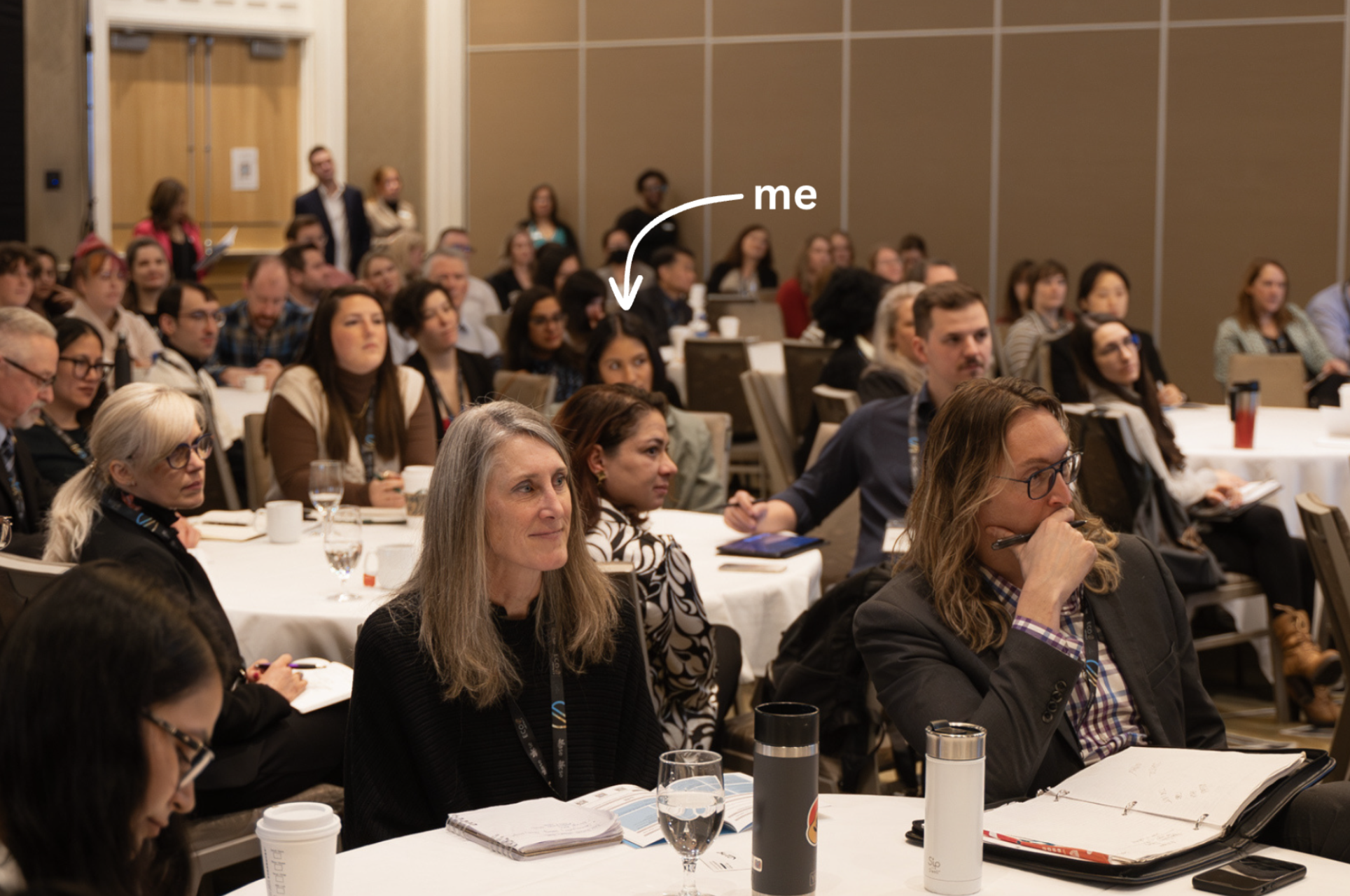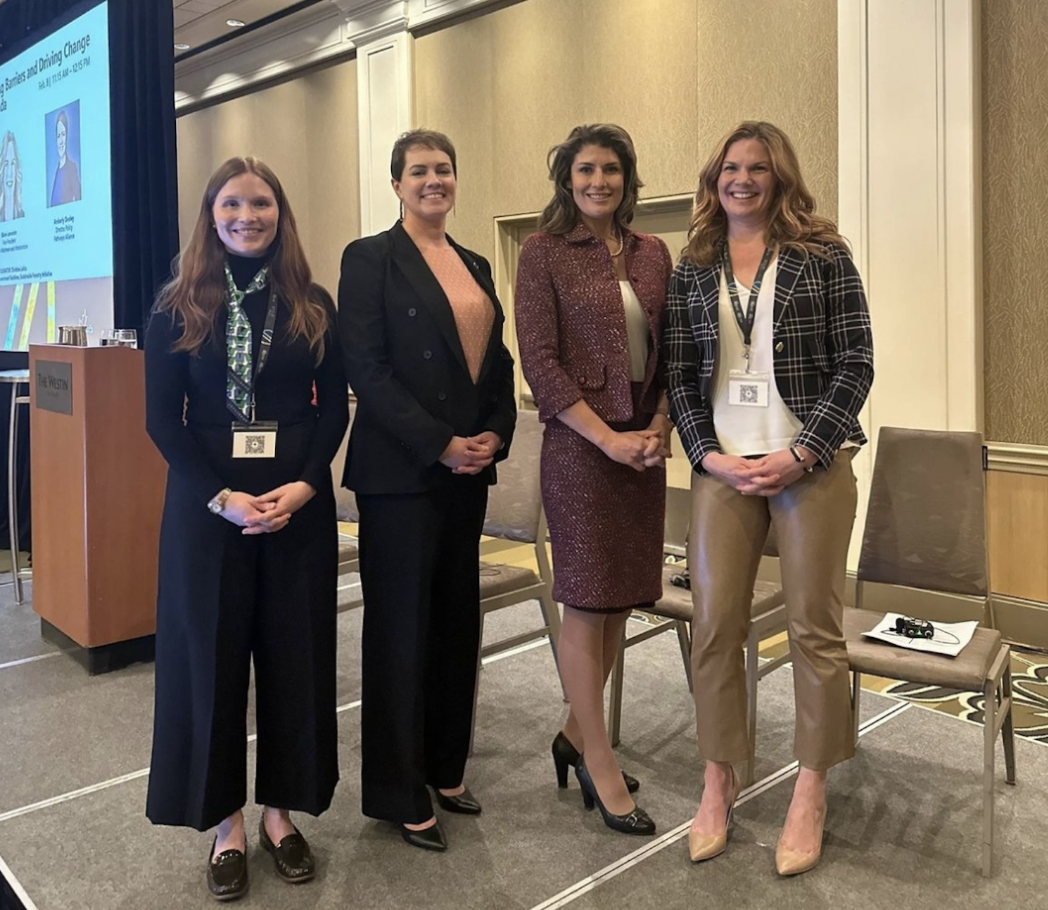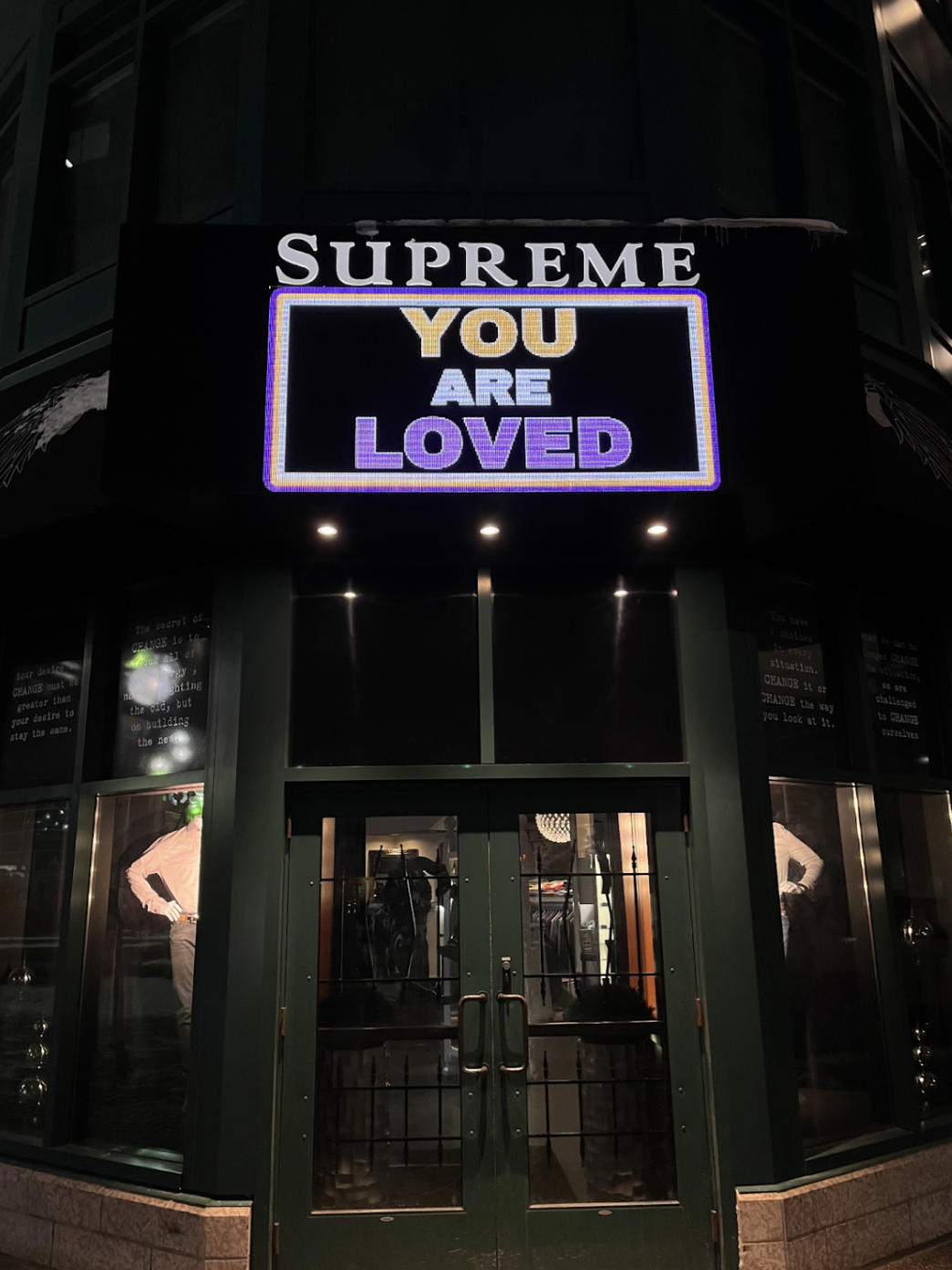ECO IMPACT 2024
Eco Impact is an annual conference hosted by Eco Canada that brings together environmental professionals from across the country. This year it was hosted in Calgary, Alberta from February 8-9th, and I had the great privilege of attending it. I represented the Sustainable Capacity Foundation and gave insights into what’s happening in Ottawa as well as the two main programs I work on. As an Asian 22-year old recent university graduate, there weren’t many people like me. The main demographic was middle-aged white men, as is the main demographic in the Canadian environmental sector. Even though it was intimidating, everyone I spoke to was very kind and shared a lot of good insight into their careers.
I was interested in so many of the conference topics, as they ranged from how fearless women lead in the Canadian environmental sector to the pressing need for deep energy retrofit projects. The panel on How Fearless Women Lead ended up being my favourite event of the conference. The women spoke openly and honestly about their experiences and imparted wisdom that I will try to remember as I navigate my own career.
The panellists (from left to right in the image) were Christine Leduc from the Sustainable Forestry Initiative, Amberely Dooley from Pathways Alliance, Nuvyn Peters from Peter & Associates, and Blaire Lancaster from Tidewater.
First off, we talked about the mistake in the title of the session- you don’t have to be fearless to lead and oftentimes you won’t be. Leadership in itself requires you to face uncomfortable circumstances and help settle conflicts which are naturally nerve-wracking things. Leaders have the courage to do it anyway. It was inspiring to hear that these women started in internships just like me and worked their way to being executive directors and CEOs of their own companies. In these spaces, there are not a lot of females, but we still excel. For example in Canada’s forestry industry only 17% of employees are female. While in these positions, the panellists found that their traditionally female qualities (i.e. empathy, warmth, emotional intelligence, relationship building) helped them to lead groups and work with clients. Much of the older generation seemed to write off women as being too emotional. They didn’t realise that everyone has emotions and embracing them can lead to better results. “Your gut feeling is all of your thinking and emotions combined”.
Another key takeaway from this panel was the feeling of inferiority when you’re in these executives positions and you don’t see anyone else that looks like you. It can add extra pressure, making you think that you have to do well for all women, or that others like you are not in your position for a reason. But, none of that is true. The hierarchies in place are simply a long-lasting effect of sexist thoughts that dominated our past.
“You’re in this position because of your good ideas, so don’t be afraid to share them”
There was another relevant workshop on Harmony & Belonging. It covered the basics of equity, diversity, and inclusion (EDI) and how to make a difference in your workplace. A key message was that you can’t just hire a new set of diverse staff, you must also prepare your current staff to support this change. The man beside me told me this was the exact reason he was there. His company is almost entirely white-men and they’ve tried to introduce EDI initiatives for the past few years, but all of them have failed. The employees weren’t accepting of the change, and it led all of the new employees to quit. This is one of the worst case scenarios, as it can cause new BIPOC hires to feel as though it’s their fault they couldn’t integrate themselves. EDI initiatives will all fail if there is no sense of belonging in the workplace. We all want to feel as though we fit in. This is especially true in a company where we’re all working towards a common goal: we already have similar interests, so what’s stopping us from supporting one another?
One concerning fact that was mentioned is that in Canada only 20% of EDI-related incidents are reported.
These incidents can severely weigh on our mental health and comfort in our workplace. What if only 20% of physical safety incidents were reported? Would we take action then? Employees must feel comfortable to go to their supervisors when these incidents occur and the workplace atmosphere is no longer positive. Along with employers, it’s your job to do something, and it’s your job to say something if you see something wrong. Creating harmony and belonging in your workplace is a group-effort, and if you treat everyone with kindness and respect it should be an easy task. You can do it!


